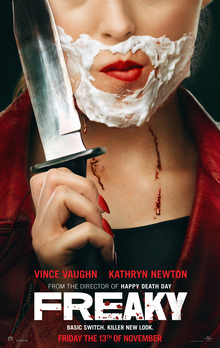I went into yesterday almost 100% ignorant about My Fair Lady ("By George I think she's got it!!" was the extent of my knowledge) - I didn't even know "Wouldn't It Be Loverly", "With a Little Bit of Luck", "I Could Have Danced All Night" and "Get Me to the Church on Time" were from this musical, despite knowing the songs. I never noticed one scintilla of romance between Eliza and Higgins during the film - but it seemed to be suggested though, as an afterthought towards the end of the whole movie and left the question of Freddy hanging in the air with no resolution. Poor Freddy. He just gets forgotten about. I haven't seen either version of Pygmalion either, but I'd like to.
The play is based on the myth of a sculptor who is disgusted by women, devotes himself to sculpting, and makes a really sexy statue of a woman and falls in love with her. (Was Pygmalion the original incel?! Discuss!) After a bunch of, um, intimate behavior with the statue, the goddess of love brings it to life and they get married.
The play takes on the overtly sexist elements of the myth and subverts them by having Eliza take the "acceptable exterior" that Higgins gives her and use it to forge her own path. The "perfect woman" walks away from her "creator". Higgins is never able to see Eliza as anything other than a prize. She wants a good job, he constantly remarks that he's made her "fit for a king". She does not want to be a trophy wife (and even compares such an arrangement to prostitution).
To me, the key line in the play (and both films) is when Eliza compares Higgins to Pickering, noting that the latter always treated her like a lady. "The difference between a lady and a flower girl is not how she behaves, but how she is treated". Higgins always treats Eliza as less-than. And his only real praise for her is disguised praise for himself--because he has made her this elegant creature.
This is why I find even an ambiguous ending off-putting. Higgins has done nothing to deserve even a non-romantic reconciliation. He acts like a child through the whole film, sulking and throwing insults. He can be a fun character, I'm not disputing that. But the whole film is leading up to Eliza's self-emancipation. Like, imagine if at the end of Empire Strikes Back Vader was like "Join me," and Luke just went "Yeah, okay, sure. What can I say? This guy makes a pretty good argument."




